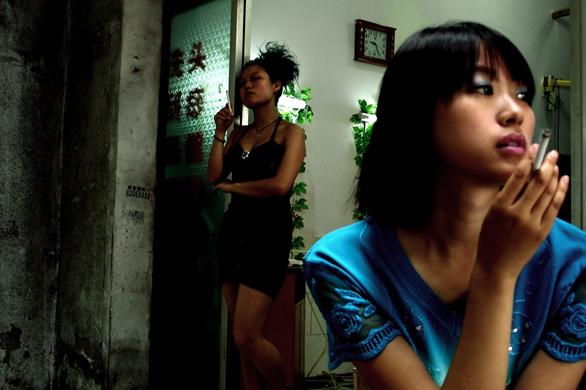
Abel Ferrera may be a film legend due to cult classics like Driller Killer and King of New York, but it is unlikely his films will ever be entered into the canons of cinema. He has a unique vision and creates entertaining, moody thrillers and gangster flicks; but he has always been on the ‘exploitation’ side of auteur filmmaking. Werner Herzog, on the other hand, has already taken his place amongst the legends of cinema. He is one of the most playful, unrestricted, but undeniably thoughtful and disciplined filmmakers of all time. The idea of Herzog ‘re-imagining’ one of Ferrera’s most engaging and gritty films is therefore an enticing idea. Show the rest of this post…
Ferrera’s Bad Lieutenant (1992) starred Harvey Keitel as a corrupt New York City cop who spends more time gambling, taking Class A drugs, and abusing young women than he does investigating homicides. But he finds himself questioning his own actions and choices while investigating the rape of a young nun. The film therefore dealt with typical New York themes like sleaze, urban decay, and Catholicism.
Herzog’s Bad Lieutenant: Port of Call New Orleans (from now on referred to as Port of Call) transports the action from the Big Apple to the Big Easy, as Nicholas Cage’s ‘Lieutenant’, Terence, investigates a gangland killing in the wake of hurricane Katrina. Cage is promoted to Lieutenant largely because so many people left New Orleans after the hurricane; and his drug addiction is explained by an agonizing and chronic pain in his back caused by jumping into a flooded prison to save a prisoner.
These may seem like cosmetic amendments to Ferrera’s idea, but the perspective and direction of the film are shifted massively due to these changes: Terence is not in a position to analyse his own destructive behaviour, and continues to dig himself further and further into trouble as the film plays out. Herzog’s lieutenant is like a malicious and self-destructive version of the Philip Marlowe in Altman’s ‘The Long Goodbye’: he constantly bumbles from one terrible and seemingly inescapable situation to the next. He jumps from the frying pan, to the fire, and back again for the entire duration of the film: upsetting loan sharks, mafia bosses, drug dealers, police chiefs, district attorneys… the list goes on.
A newly promoted Terence is supposed to be investigating the murder of a Senegalese family in the middle of Big Fate’s (Xzibit) territory. Terence is far too busy scoring drugs and ‘protecting’ Frankie (Mendez) to concentrate on the case; and things really start to unravel when Terence rushes to a casino to save Frankie from a gangster ‘client’. He loses the key witness that he has been looking after (thereby destroying the case against Fate) and also makes enemies of the mafia (who demand $50,000 from him after roughing up Frankie’s client) and the chief of police (after beating up a politician’s elderly mother in a care home). To make matters worse he owes a shady bookie $15,000 after a string of bad bets. Terence is at his wits end; he is strung out on drugs, his life is in danger, he has had his badge and gun taken away, and he owes a lot of money… but Terence isn’t the sort of guy who lets things get on top of him. I won’t explain how Terence attempts to fix all these problems, because that is where the real satisfaction of the film lies, but I will tell you that it is a fantastically entertaining and original piece of filmmaking that will have you laughing and twisting in your seat with glee and anticipation.
The cast list is quite breathtaking for such an under-publicised film: Cage is joined by Val Kilmer (his police partner), Eva Mendez (his prostitute girlfriend), Xzibit (the kingpin gang leader) and a few other recognisable faces from Herzog’s extensive filmography. It is Cage that really makes this film though. Herzog mentioned in a recent interview that he has never been a prolific drug user, and so he relied heavily on Cage’s wealth of experience on the subject to help instil Terence with that level of believability. Cage is truly electrifying in this role: he combines the snarling, venomous evil of Face/Off with the nihilistic apathy of ‘Leaving Las Vegas’, and somehow still finds room for some of the charming anti-hero honesty of ‘Raising Arizona’. This all combines to create a nasty and uncontrollable anti-hero that you just cant help caring about and rooting for.
This film is also ‘Herzog’ to the very end. He is probably the only filmmaker who could have created such a complex, sporadic, and thoughtful take on Ferrera’s film, while also making it the funniest entry at this year’s festival! Herzog’s relaxed attitude to filmmaking, and his willingness to do away with the rulebook and the concepts of classical Hollywood cinema, allows the story to stray wildly outside the lines. It is not neat, it is often unrealistic, and it might be the least responsible film since ‘Fear and Loathing in Las Vegas’; but it is also frenetic and absolutely hysterical.
There is really no way to describe the playfulness and exquisite timing of the comedy in this film. It is partially Herzog’s zany artistry, and partly Cage’s masterful control of facial expressions and comic timing. I have tried to write out a few anecdotes from the film to give you a taste, but they just aren’t funny on paper because you need to see it to believe it, and it is only funny in the context of the moment in which it is occurring and the wider context of the story world. So you will just have to trust me, along with the hundred-or-so journalists who were rolling in the aisles and giving the film the first ovation of the 2009 LFF press screenings.
★★★★★








